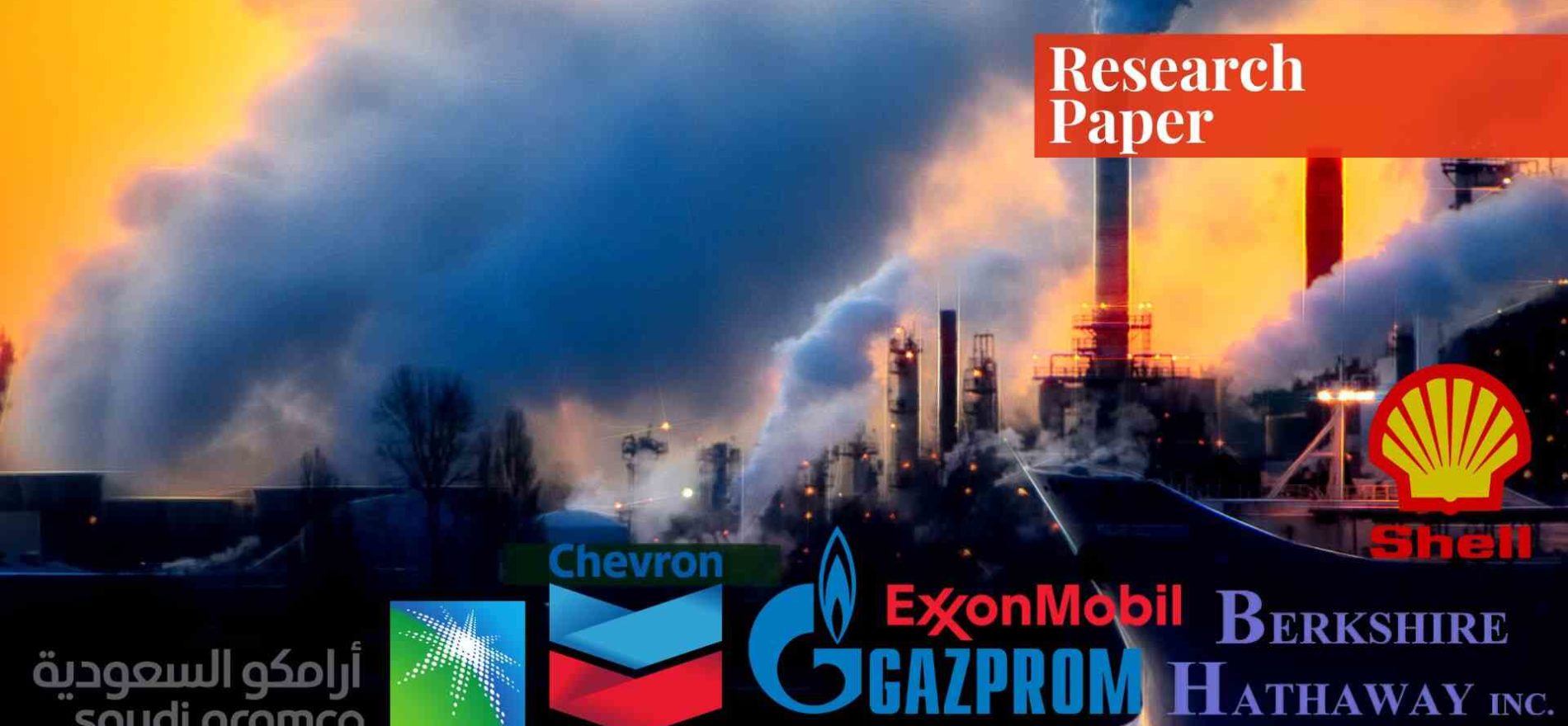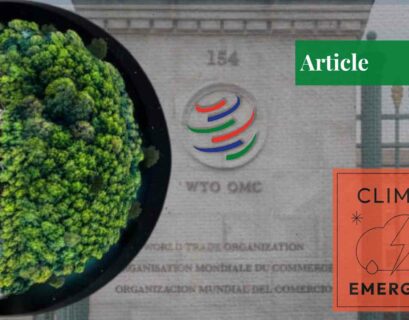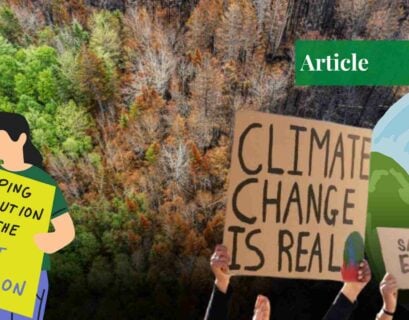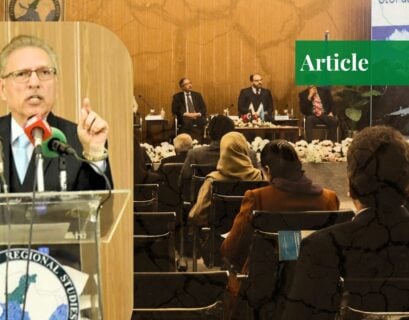Maryam Ibrahim has recently graduated from Lahore College for Women University with a bachelor's in international relations. Her sphere of interest includes the digitalization of international relations, specifically digital diplomacy.
Introduction
“It was the best of the times, it was the worst of times” – a line clearly stating Charles Dickens’ stance. Consider the tale of two planets—Venus and Earth—rather than two cities. Venus and Earth are roughly the same size and distance from the sun, and they each have around the same amount of carbon. The distinction is that on Earth, through time, carbon has been buried and is now only accessible through coal, natural gas, oil, or fossil fuel burning. On Venus, the atmosphere contains a significant quantity of carbon.
The difference is that the average temperature on Venus is 850 degrees, compared to 50 degrees on Earth. It is not due to its proximity to the sun—Mercury is the closest to the sun and is around three times colder than Venus. This is vaguely relevant to our current strategy, specifically for developing nations, of taking as much ground-based carbon and ejecting it into the atmosphere.
We might thus conclude that the effects of a crisis or climate change are not local but rather worldwide. It has an impact on all of us, but mainly on the developing world. Though the most urgent questions that need to be addressed are what is climate change, what that phrase means, and why it is such a critical concern.
Simply put, climate change is the phenomenon of global climate transformation that is defined by changes in the planet’s typical climate (in terms of temperature, precipitation, and wind) that are mostly brought on by human activity. Our future is at risk because of the rising temperature. By 2050, our lifestyles will be significantly impacted if we don’t take climate action seriously.
The loss of numerous marine species, fresh air, clean water, and animals might all have serious repercussions (Clifford, 2021). We can choose to pay the bill now or risk paying a high price later. The current discussion about how urgent it is to confront the oncoming threat of climate change has been effectively sidetracked into a discussion that puts the onus of preventing climate change mostly on individuals and their lifestyle choices.
This problem has been framed maliciously and intentionally. In the contemporary political atmosphere, climate change is a pressing issue. The degradation of the environment is directly caused by well-known companies like Saudi Aramco, Gazprom, and Chevron, among others (Taylor et al., 2019). Climate change is a reality, as evidenced by anything from waste management issues to health issues brought on by silica dust.
Just 100 firms alone account for 71 percent of global emissions and fossil fuel industries risked spending more than $2 trillion over the next ten years by pursuing coal, oil, and gas projects. Hence, major corporations primarily play a significant role in climate change.
Human activities have had a considerable detrimental influence on the environment ever since the Industrial Revolution. Our natural ecosystem and atmosphere are degrading as a result of pollution and carbon emissions, particularly from fossil fuel burning. Industrial actions’ side effects are a threat to both human civilization and all other forms of life on Earth. We must comprehend how industries affect the environment to go forward with wise decision-making and address these problems.
Toulmin Model
The contribution of large enterprises to differences in climate change cannot be quantified in a consistent way. Therefore, the industries that have the greatest impact on climate change will be explored. For better judgment, the author employs the Toulmin Model.
Since the beginning of the 20th century, fossil fuel burning has been employed in the energy industry, and as the population increases, so does the need for energy, which has an impact on the climate. Its prevalence is real and unaffected; The amount of fuel we need for daily life is rising as the population rises. According to research, the global oil consumption peaked in 2006 at roughly 85 million barrels per day, but by 2022 it had risen to 99.4 million barrels per day, and by 2026 it was expected to reach 100.4 million barrels per day (Sönnichsen, 2022).
Fossil fuel burning releases a greenhouse gas called carbon dioxide into the atmosphere, warming the planet. Global warming is caused by greenhouse gases, which trap heat in our atmosphere. Already, there has been a 1°C rise in the average world temperature.

According to the graph, CO2 emissions have risen thus far, and the fuel industry has continued to contribute to the deterioration of the climate. A small New Zealand newspaper announced, in a brief piece on August 14, 1912, that the use of coal worldwide was raising global temperatures. One of the earliest media representations of climate science, this article from 110 years ago is now well-known and circulated online around this time each year (Ashcroft, 2022).
As per a report by The Guardian, as the state of the environment worsens, litigation against the fuel business has also increased by double since 2015. The biggest polluters in Europe are the subject of at least 13 lawsuits, while gas major Santos is the target of at least two in Australia. (Kaminski, 2022). This shows that the fuel industry is playing a major role in changing of climate by polluting the environment through the emission of greenhouse gases.

The Case of Berkshire Hathaway
Forbes Global 2000 lists the top businesses for 2022. Major corporations like Berkshire Hathaway, Saudi Arabian Oil Company (Saudi Aramco), Toyota Motors, Microsft, Exxon Mobil, and Shell are just a few of the prominent names that are part of it (Murphy & Contreras, 2022). Berkshire Hathaway continued to receive poor ratings for its climate efforts and offered investors a false narrative about their progress.
At the moment, Gregory Abel serves as the CEO of Berkshire Hathaway Energy, a subsidiary. He assured the investors that the business is on pace to implement President Biden’s proposal to cut emissions by 50% by 2030. He painted a positive image of the company’s ability to meet the goal outlined in the Paris Peace Agreement. However, a researcher from the Energy and Policy Institute criticized it as being false and misleading.
In addition, Abel disclosed to investors that Berkshire Hathaway plans to continue operating 14 coal-fired power units through 2030, in violation of the Biden administration’s own pledges to the Paris Agreement (Pontecorvo & Johnson, 2021). The Energy and Policy Institute has shown that many large corporations, including Berkshire Hathaway, use various accounting techniques to make their climate progress appear better than it actually is. As a result, very few are genuinely on pace to reach their climate commitments (Foy, 2022).
According to a Financial Times article, Warren Buffett’s Berkshire Hathaway received the lowest mark possible on climate action, from a group of investors managing $68 trillion in assets, for the second year in a row. A request for comment from Berkshire was not answered, but Buffett has routinely rebuffed investor demands for the company to reveal its climate risk (Hodgson, 2022). Neither Berkshire Hathaway nor its subsidiaries have established net-zero goals or made sure that their efforts to influence public policy would be in favor of keeping global warming to 1.5°C.
Saudi Arabia’s Climate Denial
The oil and gas corporation that is owned by the Saudi government is called Aramco. It is the biggest industrial greenhouse gas emitter in the world; Saudi Arabia denies its significant contribution to climate change while preparing for the worst. Regarding the issue of global warming, Saudi Arabia’s proposal to combat it is drawing criticism since it aims to do it by producing more oil and gas. Al Jazeera reported that Saudi Arabia has been under pressure to decarbonize.
However, the world’s largest oil producer, revealed plans to increase crude output from 12 million to 13 million barrels per day by 2027, a move that experts, campaigners, and scientists warn is incompatible with efforts to avert the most severe impacts of climate change. Saudi Arabia defended its action by citing the circular economy’s use of carbon. Decarbonizing hydrocarbons, in the opinion of Aramco’s chief executive, won’t benefit anyone (Kennedy, 2021).
According to research by the Transition Pathway Initiative, Saudi Aramco is now rated at level two in terms of managing corporate greenhouse gas emissions and the risks and possibilities associated with the low-carbon transition. Although it is aware that climate change is a problem for the company, it hasn’t set a goal for greenhouse gas emissions.
Additionally, the business has not reported the Scope 3 emissions, which are thought to make up around 90% of Aramco’s emissions and are caused by its fossil fuel products (Sharma, 2021). Between 1992 and 2017, Saudi Aramco, the most successful company in the world, generated more than 40 billion metric tonnes of greenhouse gases, or almost 5% of all industrial carbon dioxide and methane emissions (Fang & Lerner, 2019). Even as it gets ready for catastrophic weather, Saudi Arabia, the world’s top producer of greenhouse gases, continues to be a major financier of climate denial.
Conclusion
A major factor in changing the environment is large corporations. Leading gas polluters with negative climate impacts include Berkshire Hathaway and Saudi Aramco. “How awful to think that nature talks and mankind doesn’t listen,” stated Victor Hugo in a moving statement. In order to allow Earth to breathe, the world has to develop more environmentally friendly ways to generate energy; otherwise, it would face problems like floods, hot weather, glacier meltdowns, ozone depletion, and many more.
Skeptics have thoroughly documented the risks associated with climate change, but because companies are here to stay, it is now important to seriously consider how to employ technology’s potential for good.
References
- Ashcroft, L. (2022, August 15). For 110 years, climate change has been in the news. Are we finally ready to listen? The Conversation. Retrieved August 17, 2022, from https://theconversation.com/for-110-years-climate-change-has-been-in-the-news-are-we-finally-ready-to-listen-188646
- Clifford, C. (2021, May 14). What 2050 could look like if we don’t do anything about climate change: Hot, a constant cough, regular mask-wearing. CNBC. Retrieved August 17, 2022, from https://www.cnbc.com/2021/05/14/what-2050-could-look-like-if-we-dont-do-anything-about-climate-change.html
- Fang, L., & Lerner, S. (2019, September 18). Saudi Arabia Denies Its Key Role in Climate Change Even as It Prepares for the Worst. The Intercept. Retrieved August 17, 2022.
- Foy, S. (2022, April 27). Warren Buffett Isn’t Doing Enough to Cut Carbon Emissions. World War Zero. Retrieved August 17, 2022.
- Hodgson, C. (2022, March 30). Berkshire Hathaway remains lowly rated on climate action. Financial Times. Retrieved August 17, 2022, from https://www.ft.com/content/9ed603c4-ecbb-4181-a78b-f3b9f16703a8
- Kaminski, I. (2022, June 30). Fossil fuel industry faces surge in climate lawsuits. The Guardian. Retrieved August 17, 2022, from https://www.theguardian.com/environment/2022/jun/30/fossil-fuel-industry-surge-climate-lawsuits
- Kennedy, R. (2021, October 26). ‘Dangerous and delusional’: Critics denounce Saudi climate plan. Al Jazeera. Retrieved August 17, 2022, from https://www.aljazeera.com/news/2021/10/26/green-or-greenwashing-saudi-arabias-climate-change-pledges
- Murphy, A., & Contreras, I. (2022, May). The Global 2000. Forbes. Retrieved August 17, 2022, from https://www.forbes.com/lists/global2000/?sh=4d1df75ac042
- Pontecorvo, E., & Johnson, N. (2021, May 6). How Berkshire Hathaway mislead investors about climate progress. Grist. Retrieved August 17, 2022, from Riley, T. (2017, July 10). Just 100 companies responsible for 71% of global emissions, study says. The Guardian. Retrieved August 17, 2022, from https://www.theguardian.com/sustainable-business/2017/jul/10/100-fossil-fuel-companies-investors-responsible-71-global-emissions-cdp-study-climate-change
- Sharma, A. (2021). Saudi Aramco. Transition Pathway Initiative. Retrieved August 17, 2022, from https://www.transitionpathwayinitiative.org/companies/saudi-aramco
- Sönnichsen, N. (2022, February 9). • Global oil tanker spills cases 2021. Statista. Retrieved August 17, 2022, from https://www.statista.com/statistics/268553/number-of-oil-spills-by-oil-tankers-since-1970/
- Sönnichsen, N. (2022, July 27). • Daily global crude oil demand 2026. Statista. Retrieved August 17, 2022, from https://www.statista.com/statistics/271823/daily-global-crude-oil-demand-since-2006/
- Taylor, M., Watts, J., & Heede, R. (2019, October 9). Revealed: the 20 firms behind a third of all carbon emissions. The Guardian. Retrieved August 17, 2022, from https://www.theguardian.com/environment/2019/oct/09/revealed-20-firms-third-carbon-emissions
If you want to submit your articles and/or research papers, please check the Submissions page.
The views and opinions expressed in this article/paper are the author’s own and do not necessarily reflect the editorial position of Paradigm Shift.


















